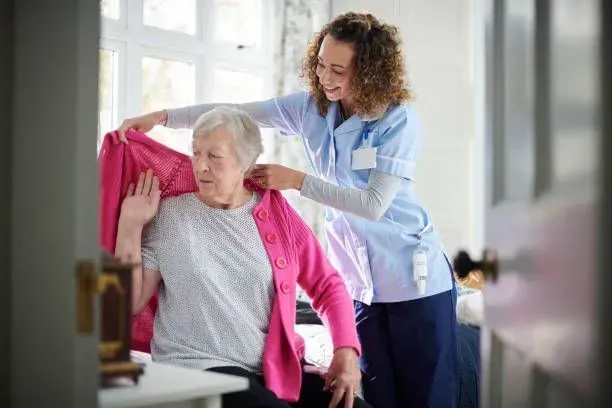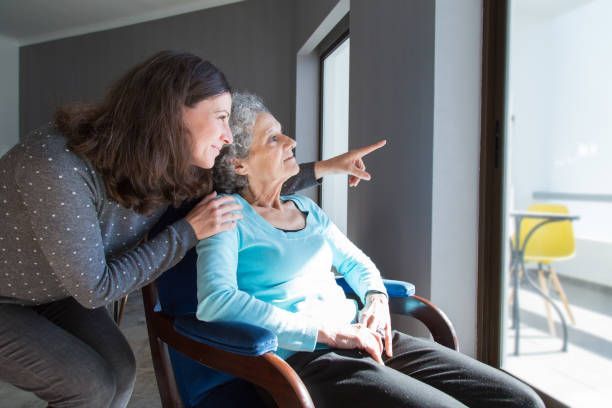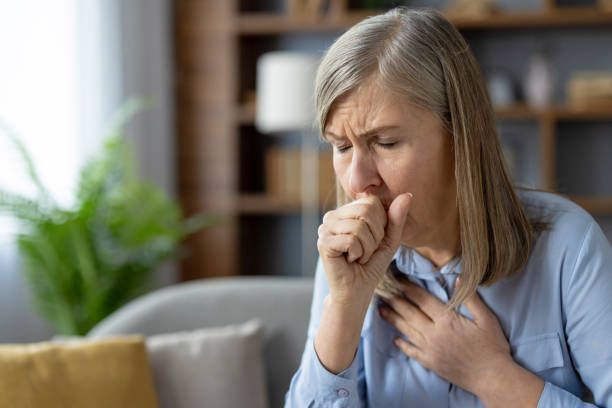Empowering Stroke Patients Through Specialized Home Care Services
Empowering Stroke Patients
Through Specialized Home Care Services
In the aftermath of a stroke, a home health aide with stroke care experience can be a game-changer for your loved one's recovery and overall well-being. These specialized caregivers understand the unique challenges stroke survivors face, from physical limitations and communication difficulties to emotional distress. They can provide essential assistance with daily living activities like bathing, dressing, and medication reminders, allowing your loved one to focus on regaining independence. More importantly, their experience equips them to support rehabilitation efforts. When appropriate, they can help with physical therapy exercises, and speech therapy practice, as directed by their therapists, all tailored to your loved one's specific needs. Furthermore, stroke care-experienced aides are adept at recognizing potential complications and can alert you or medical professionals if necessary. Perhaps most significantly, they offer emotional support and companionship, fostering a sense of security and promoting a positive outlook during this challenging time. Their expertise becomes an extension of your own care, creating a nurturing environment that maximizes your loved one's chance for a successful recovery.

Are You Searching for a Home Care Agency Near Me
with Highly Experienced Home Health Aides in Stroke Patient Care?
Recovering from a stroke can be a challenging journey that requires comprehensive support and care. While hospital stays are essential during the acute phase, the transition back home can be overwhelming for stroke patients and their families. This is where specialized home care services come into play, offering personalized assistance and rehabilitation tailored to the unique needs of stroke patients. In this article, we will explore the benefits of providing home care services to stroke patients and how it can contribute to their recovery and overall well-being.
What is a Stroke?
A stroke occurs when blood flow to a part of the brain is interrupted, depriving brain cells of oxygen and nutrients. This can happen due to a blockage (ischemic stroke) or bleeding (hemorrhagic stroke) in the blood vessels. The brain relies on constant blood flow to function, and without it, brain cells begin to die. The consequences of a stroke depend heavily on the location and severity of the damage. Some people experience temporary symptoms like weakness or slurred speech, while others face permanent impairments like paralysis, speech difficulties, or memory problems. The aftermath of a stroke can be a long and challenging journey. Rehabilitation plays a crucial role in recovery, with therapies focusing on regaining physical abilities, improving communication skills, and managing cognitive deficits. Emotional support is also vital, as survivors often grapple with anxiety, depression, and frustration. By understanding the cause, potential effects, and recovery process, stroke survivors, their families, and caregivers can navigate this challenging experience with knowledge and hope.
What Causes a Stroke?
Strokes are triggered by disruptions in blood flow to the brain. There are two main culprits: blockages and bleeds. The most common type, ischemic stroke, happens when a blood clot or fatty deposit (plaque) obstructs a blood vessel supplying the brain. This blockage can form within the brain's arteries or travel from elsewhere in the body, often originating from the heart. Hemorrhagic strokes, on the other hand, occur when a weakened blood vessel in the brain bursts, causing bleeding into the surrounding brain tissue. Several factors can increase the risk of both types of strokes. High blood pressure, a leading cause, puts excessive stress on blood vessels, making them more prone to rupture or blockage. High cholesterol levels contribute to plaque buildup, narrowing arteries. Other risk factors include diabetes, which damages blood vessels, and certain blood clotting disorders. Lifestyle choices also play a significant role. Smoking injures blood vessel walls and increases blood clot formation. Obesity and physical inactivity contribute to high blood pressure and cholesterol. Recognizing these potential causes is crucial for stroke prevention. By controlling modifiable risk factors and seeking medical attention for concerning symptoms, individuals can significantly reduce their stroke risk.
The Role of a Home Care Agency with Experience in Stroke Care
Home care services play a vital role in supporting stroke patients throughout their recovery journey. The following are key aspects of care provided by specialized home care agencies:
- Personalized Care Plans: Each stroke patient's needs are unique. Home care agencies collaborate with healthcare professionals and the patient's family to develop personalized care plans that address specific challenges, goals, and preferences.
- Rehabilitation Support: Home care providers work closely with physical, occupational, and speech therapists to continue rehabilitation exercises and therapies in the comfort of the patient's home. This helps restore mobility, regain independence in daily activities, and improve speech and communication skills.
- Assistance with Activities of Daily Living (ADLs): Stroke patients often require assistance with ADLs, such as bathing, dressing, grooming, and meal preparation. Home care providers offer support while fostering independence, ensuring a safe and comfortable living environment.
- Medication Management: Stroke patients may have complex medication regimens. Home care professionals assist with medication reminders, ensuring that patients take the right medications at the appropriate times, helping prevent complications and promoting recovery.
- Emotional Support and Companionship: Stroke recovery can be emotionally challenging for patients. Home care providers offer companionship, empathy, and emotional support, alleviating feelings of isolation, anxiety, and depression.
- Home Safety Assessment: Home care agencies conduct thorough home safety assessments, identifying potential hazards or obstacles that could hinder the patient's recovery or pose a risk to their well-being. Necessary modifications and recommendations are made to ensure a safe living environment.
Benefits of Home Care Agency Services Near You for Stroke Patients
Opting for specialized home care services for stroke patients brings several advantages:
- Comfort and Familiarity: Recovering in the familiar surroundings of home promotes comfort, reduces stress, and enhances emotional well-being, contributing positively to the recovery process.
- Individualized Attention: Home care providers offer one-on-one assistance, ensuring that the care provided is tailored to the specific needs of the patient. This personalized approach leads to more effective rehabilitation and better overall outcomes.
- Continuity of Care: Transitioning from hospital to home can be challenging. Home care services provide a seamless transition, ensuring that the care plan and therapies initiated in the hospital are continued and effectively managed in the home setting.
- Support for Family Caregivers: Family members often take on the role of caregivers for stroke patients. Home care services alleviate the burden on family caregivers, allowing them to focus on emotional support and spend quality time with their loved ones.
Choosing the Right Home Care Agency Near You
Selecting a reputable home care agency is crucial to ensure the highest quality of care for stroke patients. Consider the following when choosing a provider:
- Specialized Stroke Care Experience: Look for agencies with experience in providing care specifically tailored to stroke patients. They should have a solid understanding of the unique challenges and rehabilitation needs associated with stroke recovery.
- Trained and Certified Caregivers: Inquire about the training and certifications of the agency's caregivers. They should have expertise in stroke care, including knowledge of rehabilitation techniques, communication strategies, and emotional support.
- Collaboration with Healthcare Professionals: A reliable home care agency should maintain strong relationships with healthcare professionals, including therapists and physicians. This collaboration ensures a comprehensive and coordinated approach to stroke recovery.
- Client Testimonials and Reviews: Read client testimonials and reviews to gauge the agency's reputation and the satisfaction of previous clients. Seek recommendations from healthcare professionals or stroke support groups for additional insights.
Specialized home care services provide invaluable support and assistance to stroke patients during their recovery journey. By offering personalized care plans, rehabilitation support, assistance with ADLs, emotional support, and home safety assessments, home care agencies empower stroke patients to regain their independence and improve their overall well-being. When considering the care needs of a stroke patient, exploring the benefits of home care services can be a transformative decision that enhances recovery and promotes a higher quality of life. 7 Day Home Care is licensed by the New York State Department of Health to provide in-home care services in Manhattan, Queens, Brooklyn, Nassau County, and Suffolk County, New York. Contact 7 Day Home Care at 516-408-0034 or visit 7 Day Home Care to learn more about our home care services for stroke patients.
Brian Callahan
7 Day Home Care










